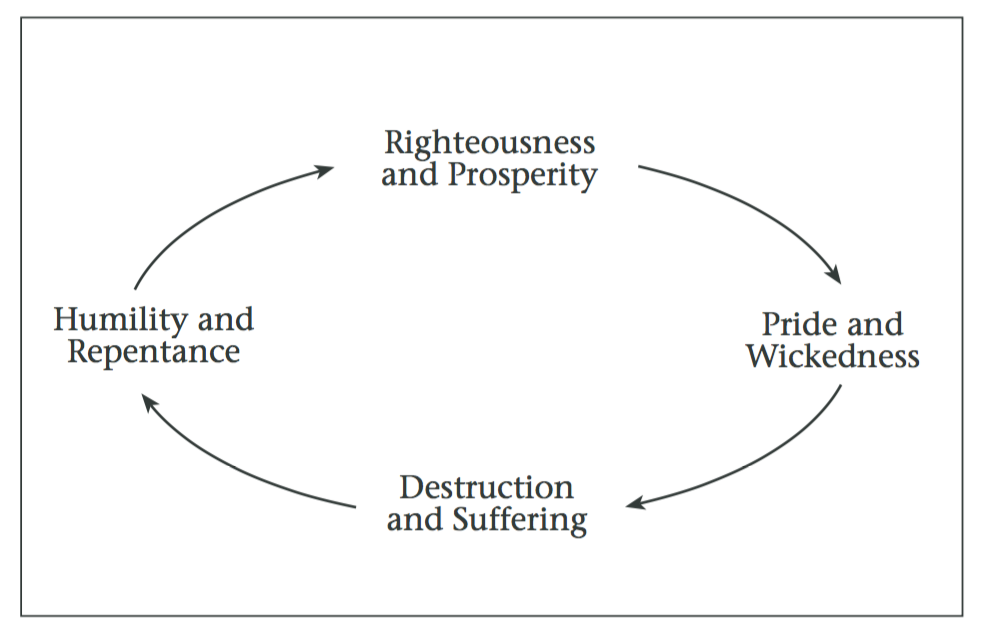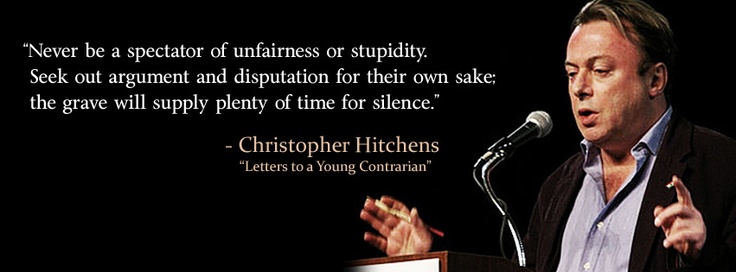“How Could You Have Forgotten Your God?”
Helaman 6–12
LDS manual: here
Purpose
To dismantle the idea that pride causes societal destruction
Reading
Now we’re to one of the parts of the Book of Mormon when the Lamanites are more righteous than the Nephites. How strange! Those dark, filthy, and unenticing Lamanites are actually more righteous than the light-skinned Nephites. That’s certainly unexpected — if you see race as a reflection of righteousness.
Helaman 6:1 And it came to pass that when the sixty and second year of the reign of the judges had ended, all these things had happened and the Lamanites had become, the more part of them, a righteous people, insomuch that their righteousness did exceed that of the Nephites because of their firmness and their steadiness in the faith.
When I read this, I feel like I’m listening to Mormons describing non-Mormons as “good people…”. Is it my imagination, or do I hear an “…even though they don’t have the Gospel” in there somewhere?
The hero of this story is Nephi₃. He’s so righteous that God gives him the smiting power.
Helaman 10:6 Behold, thou art Nephi, and I am God. Behold, I declare it unto thee in the presence of mine angels, that ye shall have power over this people, and shall smite the earth with famine, and with pestilence, and destruction, according to the wickedness of this people.
Wow, the power to kill people who do things that God doesn’t like!
Also teleportation, just like Jesus. You’ll remember that he was able to “convey” himself out of the clutches of his enemies. Well, Nephi₃ has this too.
Helaman 10:15 And it came to pass that when Nephi had declared unto them the word, behold, they did still harden their hearts and would not hearken unto his words; therefore they did revile against him, and did seek to lay their hands upon him that they might cast him into prison.
10:16 But behold, the power of God was with him, and they could not take him to cast him into prison, for he was taken by the Spirit and conveyed away out of the midst of them.
Apparently when you’re sufficiently Godlike, it’s a superpower you can unlock.
Nephi₃ sees the wickedness of the people, so rather than let them kill each other, he suggests a famine instead.
Helaman 11:3 And it came to pass that in this year Nephi did cry unto the Lord, saying:
11:4 O Lord, do not suffer that this people shall be destroyed by the sword; but O Lord, rather let there be a famine in the land, to stir them up in remembrance of the Lord their God, and perhaps they will repent and turn unto thee.
11:5 And so it was done, according to the words of Nephi. And there was a great famine upon the land, among all the people of Nephi. And thus in the seventy and fourth year the famine did continue, and the work of destruction did cease by the sword but became sore by famine.
You might think from this that Nephi₃ is some kind of ghoul. But really, he’s a bit of a softie. God would have taken things in hand himself, and put the big smite on people. But then, what do I know? I’m such a pushover, I probably wouldn’t have tried to kill anyone. I probably would have let them ignore that destructive “God” maniac, and let them get on with living their lives, free of the fear of such a being.
Main ideas for this lesson
Pride cycle
This lesson identifies pride as one of the big no-nos for humanity. And a recurring theme in the Book of Mormon is known as the “pride cycle”. Here’s the graphic that appears in the LDS Gospel Doctrine manual.

Latter-day Saints see this pride cycle as a real pattern.
The problem is that it isn’t. This is something that has never happened in the history of the world. Nations do not decline because they don’t adhere to religious principles. If they did, we would expect to see the least religious countries become cesspools of misery. Surprise — they’re actually doing quite well.
The theory is simple: If people become less religious, then society will decay. Crime will skyrocket, violence will rise, and once-civilized life will degenerate into immorality and depravity. It’s an old, widespread notion. And it’s demonstrably false.
If it were true that when belief in God weakens, societal well-being diminishes, then we should see abundant evidence for this. But we don’t. In fact, we find just the opposite: Those societies today that are the most religious — where faith in God is strong and religious participation is high — tend to have the highest violent crime rates, while those societies in which faith and church attendance are the weakest — the most secular societies — tend to have the lowest.
This dovetails into the other side of the pride cycle — not only do less-religious countries not fail, but religiously zealous countries don’t do better. It’s when the religious crazies take over that countries do the worst. This shouldn’t be surprising, when God himself shows so little concern for people around the globe. Something about yearning for an afterlife seems to be incompatible with improving this one.
If you want to see an example of someone advocating humility and repentance, think of this guy.
There’s more: he’s convinced that — as the Book of Mormon says — God gave up on people and left them to themselves.
“Why do homosexuals murder homosexuals?” he asked. Because, according to Romans 1, “God gave them up to vile passions.” “Violence” and “murder,” he said, are deeply tied to homosexuality.
“What’s the bottom line as we view what’s happening in Orlando today?” he said. “I think it is, again, the Romans 1 scenario, it is that God gives them up.”
The Orlando massacre, Swanson added, shows what happens when God’s “restraints have been lifted entirely and when God doesn’t restrain, people go nuts in their sins.”
Believers think the Book of Mormon sounds entirely sensible, but just try listening to someone who takes these ideas seriously, and who says so. He sounds like a dangerous lunatic. At the very best, his way is unlikely to bring about the model of social cohesion that the Book of Mormon promises.
Enough about nations. Do individual people “dwindle” when they stop believing, as the Book of Mormon says?
Helaman 6:34 And thus we see that the Nephites did begin to dwindle in unbelief, and grow in wickedness and abominations, while the Lamanites began to grow exceedingly in the knowledge of their God; yea, they did begin to keep his statutes and commandments, and to walk in truth and uprightness before him.
My friend Tim on Facebook responds very eloquently. He said I could share this status:
Hey LDS friends and family. One of your leaders said things about me (and others like me) and I’d like an opportunity to set the record straight.
– I did not die spiritually. I feel joy, peace, happiness, and am quite alive.
– I did not lose my testimony. I did not lose anything except for that which I already did not have. I learned a new perspective which gave me new insight to what my religious experiences meant. I don’t value those experiences less, I interpret them in a way that is more consistent with reality.
– Sin / guilt did not cloud my mind as I decided to leave. I felt very enlightened as I decided to journey out of LDS activity. It was a matter of earnest prayer and heartfelt study. If there was anything that tried to cloud my mind, I think it would be church apologetics, something which I now find very deplorable and dishonest. I consistently found that the neutral resources were far more honest and direct than those of the apologetics.
– I don’t hate Mormonism, as a whole. I love aspects of it, and dislike others. I love the people, generally, and I think frequently about participating in some form or fashion, but the organization perpetually demonstrates that it is able to change, but on it’s own timeline, not mine. I’m not willing to wait nor do I care to participate in catalyzing the change from the inside. I see what the church does to those people. I find it deeply disappointing and dishonest.
– It is super frustrating that the LDS church tried to place blame on those who leave. “It’s not our fault you didn’t know this stuff before you committed two years of your life as a missionary / all of your resources to building up our definition of the Kingdom of God”. Huh? Maybe. You certainly made it a priority for me to learn the information that served you over that which may have served me to make a choice. The church tasked me with so many church things, and told me what was important to study; I could never fully complete it. I never had time for the “unimportant stuff”. How much time did you task me with Temple Prep? With Mission Prep? Couldn’t have fit it in, huh? “Oh by the way this painting of Joseph Smith using Gold Plates is a farce it was a rock in the hat”. Couldn’t squeeze it in? :/ The church stigmatized the unimportant stuff. The church excommunicated people for saying that which was true but “not uplifting”. And, the church endlessly invents ways to shift blame to me for any behavior the church finds undesirable. This is sickening and abusive. I reject this line of thought.
—
Advice to other Mormons: I’m observing the LDS church is continuing down a path which values membership retention above honesty. I don’t think it is looking out for your welfare as much as it is it’s own. This may seem fine, but geez, I implore you to gain the perspective to at least be able to see both sides. A perspective which keeps you in control of your faith.
I implore you, READ the “Mormon Challenge”, a document which helps show the “other perspective” on Mormonism using LDS church-approved sources only. It will only help you gain perspective, and you don’t lose anything by gaining perspective:
https://dl.dropboxusercontent.com/…/The%20Mormon%20Challeng…
My only motive and desire for saying any of this is that minds can be free.
“Truth never damages a cause that is just.” – Mahatma Gandhi
“I would rather have questions that can’t be answered than answers that can’t be questioned.” – Richard Feynman
“Question with boldness even the existence of a God; because, if there be one, he must more approve of the homage of reason, than that of blind-folded fear.” – Thomas Jefferson
So why are prophets so down on prosperity? Probably because it puts no money in their own pocket.
President Ezra Taft Benson said: “The two groups who have the greatest difficulty in following the prophet are the proud who are learned and the proud who are rich. The learned may feel the prophet is only inspired when he agrees with them; otherwise, the prophet is just giving his opinion — speaking as a man. The rich may feel they have no need to take counsel of a lowly prophet” (The Teachings of Ezra Taft Benson [1988], 138).
As I’ve said before, religion doesn’t have much to offer someone who’s content, happy, and doing well. It has a lot to offer someone who’s desperate for a second chance in life.
Contention
The LDS Gospel Doctrine manual is quite set against contention.
• What was the first sign that the short-lived period of humility and righteousness was ending? (See Helaman 11:22.) How did Nephi, Lehi, and their brethren put an end to this contention? (See Helaman 11:23.) In what ways can teaching “true points of doctrine” help us put an end to contention?
Ask: Why would the LDS Church warn against contention?
Having a range of available opinions — with the contention that this sometimes engenders — is actually healthy for discussion and learning. It’s not great for managing a group though. If you’re a cult leader, you want a docile group where everyone listens only to you.
Warning against contention, then, is a way of shutting down discussions in which people might have to face unpleasant facts — like the fact that the religion is wrong.
Rather than avoid contention, we should be engaged in discussion with people we might disagree with. It can be a great way to find flaws in your argument. It might force you to examine and change your views.
I’m with this guy.


Recent Comments